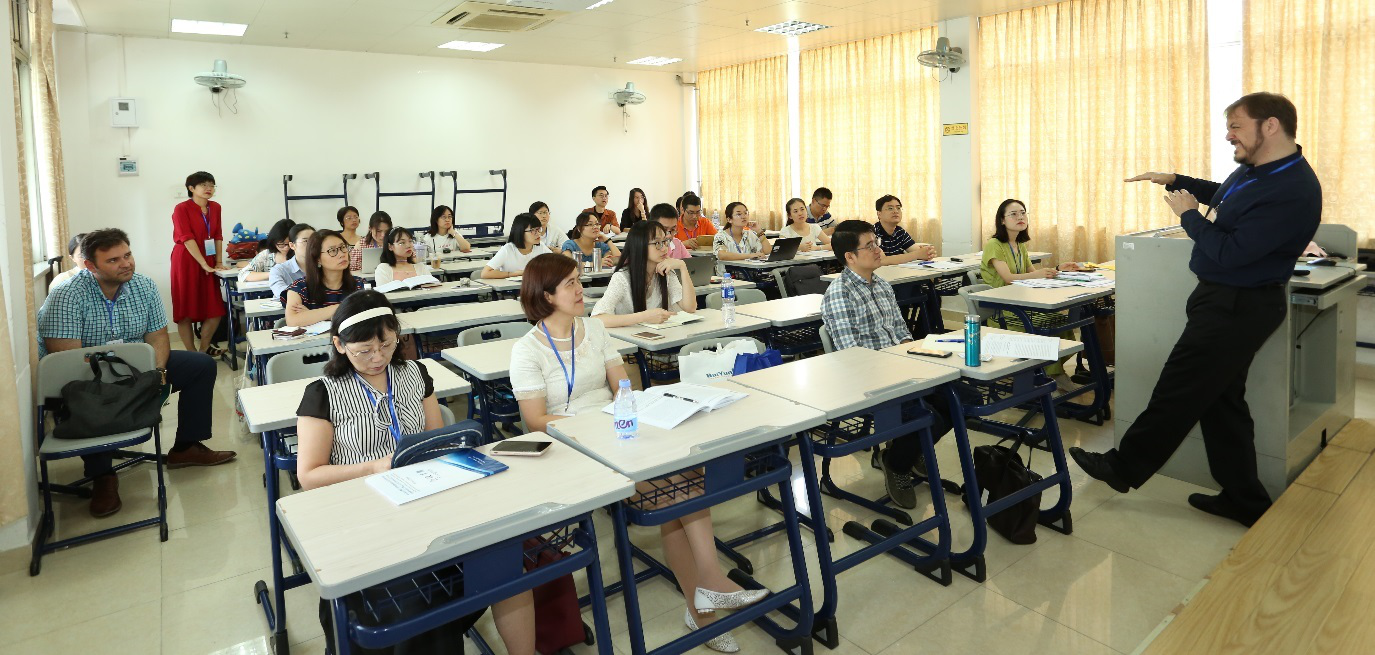|
The Fifth International Conference on Language Testing and Assessment and Inaugural Meeting of China Association for Language Testing and Assessment
was recently held at Guangdong University of Foreign Studies with the theme being “Language Testing Research: Past and Future” and EAAST. Given the size, prestige, and purpose of the conference, EAAST was proud to have four representatives and I was fortunate to be one of them.

Evan Simpson presenting at CALTA 2019
My talk, Breaking the Cycle: Intervening for Positive Washback, focused on the washback (aka, the effect of a test on teaching and learning[]) the IELTS Speaking and Writing workshops have had on teaching in China.
To measure the impact, I sent a 14-item follow-up questionnaire to 162 people who had attended the IELTS Speaking and Writing workshop and received 29 responses. The results indicated that the workshops had an overwhelmingly positive impact on teachers at all levels and at all settings, (i.e., language schools, middle schools, and universities).
To be more precise, compared to before they attended the workshop,
● 4 out of 5 have a better understanding of the language abilities being measured by the IELTS speaking and writing tests
● 70% focus more on improving language skills and not just test-taking skills
● 68% use a wider range of activities (i.e., not just practicing the test)
● 65% say they use a wider range of materials, (i.e., not just practice tests)
and, unsurprisingly, 100% of respondents said they would love to take part in a more advanced IELTS speaking and writing workshop.
While the numbers above look nice, some of the responses to the question:
“Are there any changes in your teaching methodology or teaching strategies that you would like to highlight?”
particularly stood out:
Response 1:
My students tend to have a better understanding of the assessment criteria and are able to match their performance with them. Thus, it's obviously easier for them to notice the gap and follow my steps.
Response 2:
I'm going to put more emphasis on making students aware and able (with some guidance) to identify their problems (especially on language accuracy) and try to correct them by themselves.
Response 3:
Analyzing students level becomes much mor easier (sic).
While this study is far from definitive, we can say that based on the responses received, the workshops are having a positive washback on how teachers are teaching; namely, the workshop promotes the teaching of English in order to achieve higher performances on the exam instead of narrowing the curriculum to focus solely on test taking strategies.
As for my colleagues,
Sheryl Cooke regaled the audience with the history of IELTS in China as well as plans for the future.
Johnathan Cruise shed light on how IELTS is viewed through the lens of Chinese test-takers by analysing Chinese social media.
Frank Wucinski shared the work he has done to assist organizations in writing better test items.
For further information on any of the topics above, please contact us at
EAAST Enquiries
.
from Designing and Analyzing Language Tests by Nathan Carr
by Evan Simpson
|